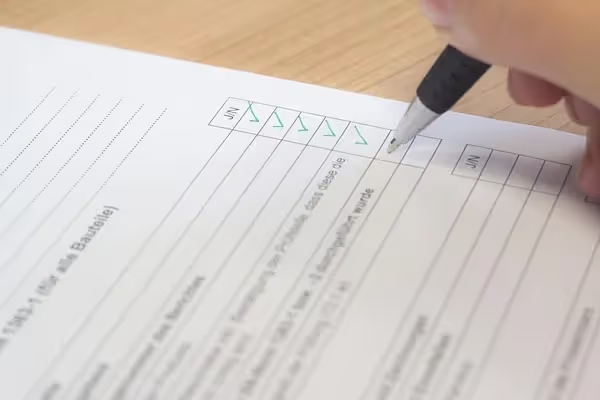Introduction
Hiring the right teachers, staff, and administrators is a critical responsibility for any school or educational institution. One overlooked online post, comment, or public behavior can quickly lead to public outrage, legal issues, or damage to student safety and school reputation. This is why social media background checks are gaining traction in the education industry as a tool to enhance vetting without compromising fairness or privacy.
Why Social Media Background Checks Matter in Education
Educators are role models. Whether they're teachers, counselors, or school leaders, their behavior online and offline matters. Unlike many industries, schools are not only hiring for skill, but also for character and conduct. Social media can reveal important insights into a candidate’s behavior, values, and communication style that a resume or reference check may miss.
For example, posts promoting violence, hate speech, substance abuse, or inappropriate humor can raise valid concerns. These checks are especially useful in roles involving children, teens, or vulnerable populations.
Common Red Flags Detected Through Social Media Screening
When reviewing a candidate’s online presence, hiring teams often watch for:
- Hate speech or discriminatory comments
- Sexual or explicit content
- Alcohol or drug-related content
- Violent or aggressive language
- Extremist political views or conspiracy theories
- Bullying or harassment in comments or replies
- Public complaints about former students or schools
While none of these automatically disqualify someone, they can be valid signals to probe further during interviews or reference checks.
According to the Education Week Research Center, over 70% of district leaders say that reputation and online behavior are critical in hiring decisions for educators (edweek.org).
Legal and Ethical Boundaries to Understand
It’s essential for schools to strike a balance between smart screening and legal compliance. Social media background checks must not violate discrimination laws, and decisions cannot be based on protected characteristics like age, race, gender, religion, or political affiliation (unless promoting hate).
Best practices include:
- Getting written consent before screening
- Using a third-party screening partner for neutrality
- Applying the same screening process to every applicant
- Documenting decisions and risk factors fairly
- Not accessing private accounts or hidden content
Failing to follow these rules can result in lawsuits or damaged employer brand reputation.
How Schools Can Conduct Responsible Social Media Checks
To make the most of social media screening for employment while staying compliant, schools can follow a simple process:
- Create a clear policy outlining what is screened and why
- Inform candidates and seek written consent for checks
- Use standardized criteria to evaluate social content
- Avoid manual browsing of profiles that can introduce bias
- Rely on trusted platforms that are built to comply with privacy laws
- Use findings to start conversations, not just disqualify blindly
Consistency, documentation, and transparency are the keys to doing this right.
Challenges Schools Face During the Screening Process
While valuable, social media background checks in education come with a few key challenges:
- Privacy concerns: Candidates may feel that personal lives are being unfairly judged
- Time-consuming: Manual checks take hours and are prone to bias or missed data
- Legal risk: Uninformed checks can lead to discrimination claims
- False positives: AI tools may misread sarcasm or old posts as risks
- Changing platforms: New social media apps emerge often, complicating monitoring
These hurdles make it clear that schools need tools built to handle screening at scale—securely and responsibly.
According to the National School Boards Association, nearly 60% of districts faced reputational challenges due to employee misconduct on social media (nsba.org).
How Phyllo Helps with Ethical Social Media Screening
Phyllo offers an ethical and consent-driven solution for social media screening in the education industry. Built as an infrastructure layer for creator and professional data, Phyllo enables institutions to access verified, permission-based insights from candidates' online profiles without overstepping privacy.
Here’s how Phyllo supports schools and hiring committees:
- Consent-first design: Phyllo only accesses data from accounts that candidates authorize, ensuring transparency and trust.
- Multi-platform coverage: It allows checks across platforms like Instagram, YouTube, TikTok, and more, using structured data for easy evaluation.
- Real-time data access: Institutions can view current and historical content, helping them assess tone, language, and risk factors clearly.
- No scraping or manual browsing: Phyllo replaces biased and invasive review methods with API-driven data collection.
- Customizable filters: Schools can set screening parameters that match their code of conduct or behavior policy.
- Audit trails for decisions: All access and assessments are documented, which helps in maintaining a fair and compliant hiring record.
Phyllo helps automate a part of the hiring process that was once slow and inconsistent, making it ideal for the high-responsibility demands of education hiring.
Conclusion
The reputation and safety of a school often depend on the behavior of its staff. Social media background checks give educational institutions an extra lens into character without overstepping ethical lines—if done the right way.
With tools like Phyllo’s social media background check and social media screening for employment, schools can gain meaningful insights while honoring privacy and fairness. It’s time to move away from guesswork and manual checks, and toward data-backed hiring that protects students, staff, and the values education stands for.
Frequently Asked Questions (FAQs)
1. What is a social media background check in education?
A social media background check in education involves reviewing a candidate’s publicly available social media profiles to evaluate their behavior, professionalism, and alignment with school values before hiring.
2. Why are social media checks important for educators?
Educators serve as role models and work with vulnerable populations such as children. Social media checks help identify potential risks like unprofessional conduct or behavior that may impact student safety and school reputation.
3. Are social media background checks legal in the education sector?
Yes, but they must comply with privacy laws and be conducted ethically. Schools should have clear policies, obtain candidate consent, and focus on job-relevant information to avoid discrimination.
4. What red flags do schools look for in social media screening?
Red flags may include hate speech, inappropriate language or images, evidence of substance abuse, breaches of confidentiality, and any conduct that conflicts with educational ethics.
5. How can schools ensure fairness when conducting social media checks?
By applying consistent screening criteria, limiting reviews to public information, training HR staff on legal and ethical guidelines, and using unbiased tools like Phyllo to automate and anonymize the process.
6. Can social media screening replace traditional background checks in education?
No, social media screening should complement, not replace, standard background checks such as criminal history and reference verifications.
7. How do social media background checks protect students and staff?
They help prevent hiring individuals who may pose risks, ensuring a safe, professional, and trustworthy educational environment.
8. Should candidates be informed about social media screening?
Yes, transparency builds trust and ensures candidates understand how their information will be used.
9. What role does technology play in social media screening for schools?
Technology, like AI-powered tools from Phyllo, helps automate data collection and analysis while ensuring compliance and reducing human bias.
10. How often should schools update their social media screening policies?
Policies should be reviewed regularly to stay compliant with evolving laws, technologies, and best practices in hiring.












.avif)

.avif)